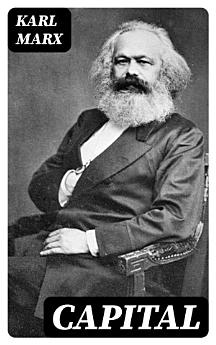Capital
nov. 2022 · DigiCat
E-bok
871
Sidor
family_home
Kvalificerad
info
reportBetyg och recensioner verifieras inte Läs mer
Om den här e-boken
In "Capital," Karl Marx presents a critical analysis of political economy, unearthing the dynamics of capitalist production and its inherent contradictions. Employing a rigorous dialectical method, Marx deconstructs the commodity form, labor relations, and capital accumulation, all while weaving a rich tapestry of historical materialism. The text is both a profound philosophical treatise and an empirical investigation, reflecting the industrial transformations of the 19th century and engaging with contemporary economic theories. Its comprehensive critique challenges the moral underpinnings of capitalism, situating economic factors within broader social and historical contexts. Karl Marx, a philosopher, economist, and revolutionary socialist, wrote "Capital" as a culmination of his lifelong efforts to understand the socio-economic structures governing the lives of the proletariat. Influenced by Hegelian dialectics, the Enlightenment, and his own experiences in the tumultuous economic climate of Europe, Marx sought to articulate how capitalist systems exploit labor while simultaneously fostering social discrepancies. His scholarly work draws from a vast array of historical sources and economic theory, establishing him as one of the most influential thinkers in modern history. "Capital" is essential reading for anyone seeking to understand the complexities of the capitalist system and its implications for society today. Its insights into economic structures and class relations remain relevant and provocative, offering a compelling foundation for contemporary debates on inequality and the future of economic systems. Whether one agrees with Marx or not, engaging with his work is crucial for a nuanced understanding of modern socio-economic dynamics.
Om författaren
Karl Marx (1818-1883) was a German philosopher, economist, historian, sociologist, political theorist, journalist, and revolutionary socialist. He is best known for his critical analysis of capitalism and his theory of historical materialism, a methodological approach to the study of society, economics, and history. Marx's most notable work, 'Capital: Critique of Political Economy' (Das Kapital), delves into the inner workings of the capitalist system, the dynamics of surplus value, and the labor theory of value. This magnum opus, although unfinished, is widely considered one of the most significant theoretical foundations for modern social thought and continues to influence economic and political theories to this day. Marx's literary style is characterized by its rigor, depth of analysis, and penetrating insight into societal structures. Additionally, his writing is dense with theoretical concepts that have sparked extensive discourse and debate among scholars and activists alike. Books such as 'The Communist Manifesto,' which he co-authored with Friedrich Engels, and 'Capital' have had a monumental impact on the understanding of the socio-economic forces that shape the modern world. Marx's ideas have played a central role in the development of social science and have had a profound effect on various social movements, especially in the shaping of socialist and communist philosophies worldwide.
Betygsätt e-boken
Berätta vad du tycker.
Läsinformation
Smartphones och surfplattor
Installera appen Google Play Böcker för Android och iPad/iPhone. Appen synkroniseras automatiskt med ditt konto så att du kan läsa online eller offline var du än befinner dig.
Laptops och stationära datorer
Du kan lyssna på ljudböcker som du har köpt på Google Play via webbläsaren på datorn.
Läsplattor och andra enheter
Om du vill läsa boken på enheter med e-bläck, till exempel Kobo-läsplattor, måste du ladda ned en fil och överföra den till enheten. Följ anvisningarna i hjälpcentret om du vill överföra filerna till en kompatibel läsplatta.








